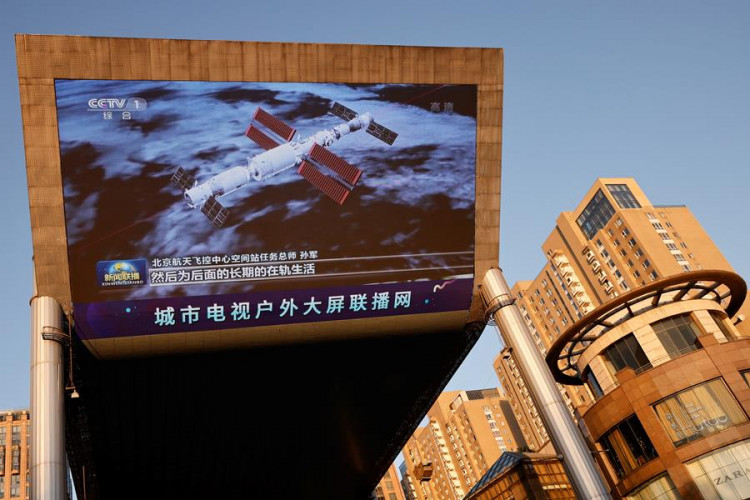Three Chinese astronauts have returned to Earth on Friday after a 90-day stay onboard the country's first space station in China's longest manned mission yet.
Liu Boming, Nie Haisheng, and Tang Hongbo landed in the Gobi desert on the Shenzhou-12 spaceship just after 1:30 p.m. (0530 GMT) after having separated from the space station on Thursday morning.
"It feels very good to be back!," Tang told state-run broadcaster CCTV after completing the country's longest crewed mission, a record for China.
The mission is another demonstration of China's growing capability and confidence in the space domain and the latest landmark in the nation's campaign to become a major space power.
During their time in zero gravity, the three astronauts completed different kinds of tasks including sending experimental information back to Earth and conducting hours-long spacewalks, China's Global Times said.
"I firmly believe there will even be more astronauts who will make new records," mission commander Nie said in quotes by CCTV.
China has sent 14 astronauts in total into space since 2003, when it became only the third nation after the United States and the former Soviet Union to do so on its own.
In 2019, China emerged as the first nation to deploy a remote-controlled rover to the little-explored far corner of the Moon.
The "taikonauts," as China's astronauts are known, will be subjected to a 14-day isolation before they are allowed to go home to check their immune systems as they may have weakened following the long mission, Huang Weifen, chief designer of the crewed space project, said.
China launched its own space station program in the 1990s after being excluded from the International Space Station (ISS), mainly because of opposition from the U.S. to China's space program's secrecy and military support.
The launch of China's first manned mission in almost five years coincided with the 100th anniversary of the ruling Communist Party on July 1, and was the center-stage of an extensive propaganda drive.
China has also successfully landed its Tianwen-1 space probe on Mars this year, with the accompanying Zhurong rover venturing out to search for evidence of life.




